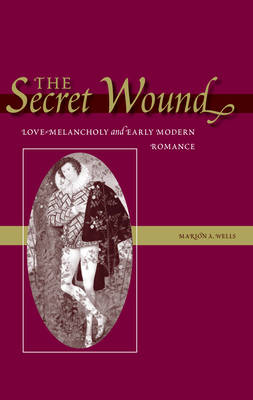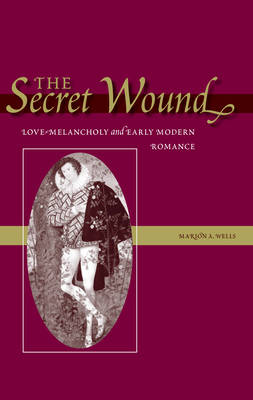
- Afhalen na 1 uur in een winkel met voorraad
- Gratis thuislevering in België vanaf € 30
- Ruim aanbod met 7 miljoen producten
- Afhalen na 1 uur in een winkel met voorraad
- Gratis thuislevering in België vanaf € 30
- Ruim aanbod met 7 miljoen producten
Omschrijving
This book offers a new reading of early modern romance in the light of historically contemporary accounts of mind, and specifically the medical tradition of love-melancholy. The book argues that the medical profile of the melancholic lover provides an essential context for understanding the characteristic patterns of romance: narrative deferral, epistemological uncertainty, and the endless quest for a quasi-phantasmic beloved. Unlike many recent studies of romance, this book establishes a detailed historical basis for investigating the psychological structure of romance. Wells begins by tracing the development of the medical disorder first known in the Latin west as amor hereos (lovesickness) from its earliest roots in Greek and Arabic medicine to its translation into the Latin medical tradition. Drawing on this detailed historical material, the book considers three important early modern romances: Ariosto's Orlando Furioso, Tasso's Gerusalemme Liberata, and Spenser's The Faerie Queene, concluding with a brief consideration of the significance of this literary and medical legacy for Romanticism. Most broadly, the interdisciplinary nature of this study allows the author to investigate the central critical problem of early modern subjectivity in substantially new ways.
Specificaties
Betrokkenen
- Auteur(s):
- Uitgeverij:
Inhoud
- Aantal bladzijden:
- 384
- Taal:
- Engels
Eigenschappen
- Productcode (EAN):
- 9780804750462
- Verschijningsdatum:
- 3/01/2007
- Uitvoering:
- Hardcover
- Formaat:
- Genaaid
- Afmetingen:
- 161 mm x 229 mm
- Gewicht:
- 630 g

Alleen bij Standaard Boekhandel
Beoordelingen
We publiceren alleen reviews die voldoen aan de voorwaarden voor reviews. Bekijk onze voorwaarden voor reviews.











